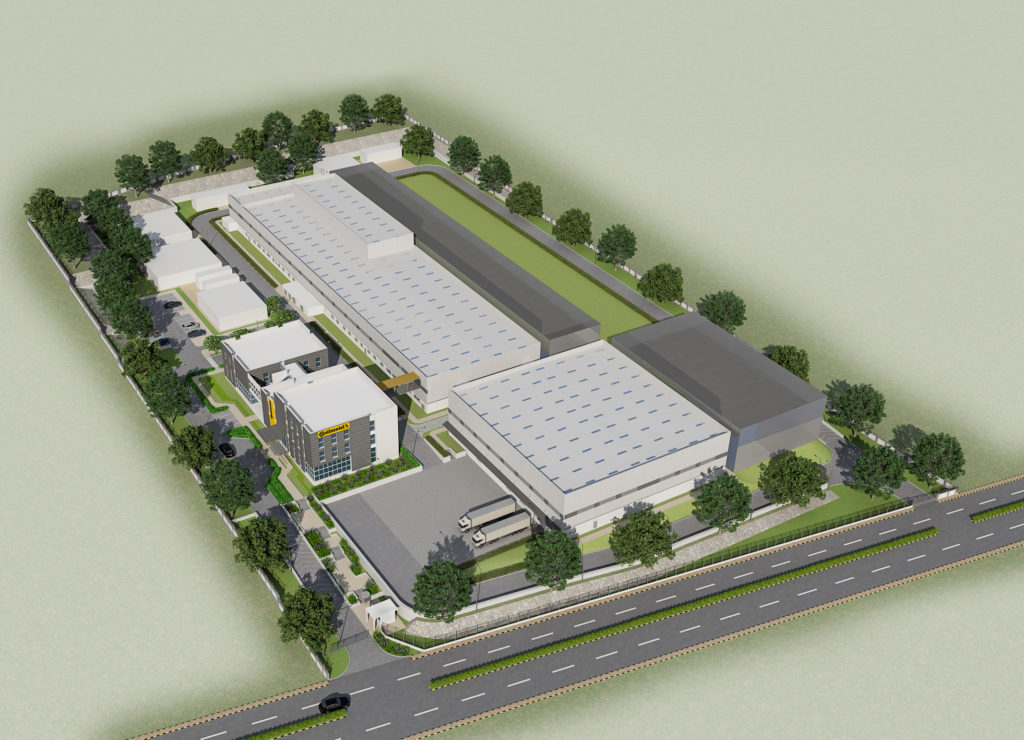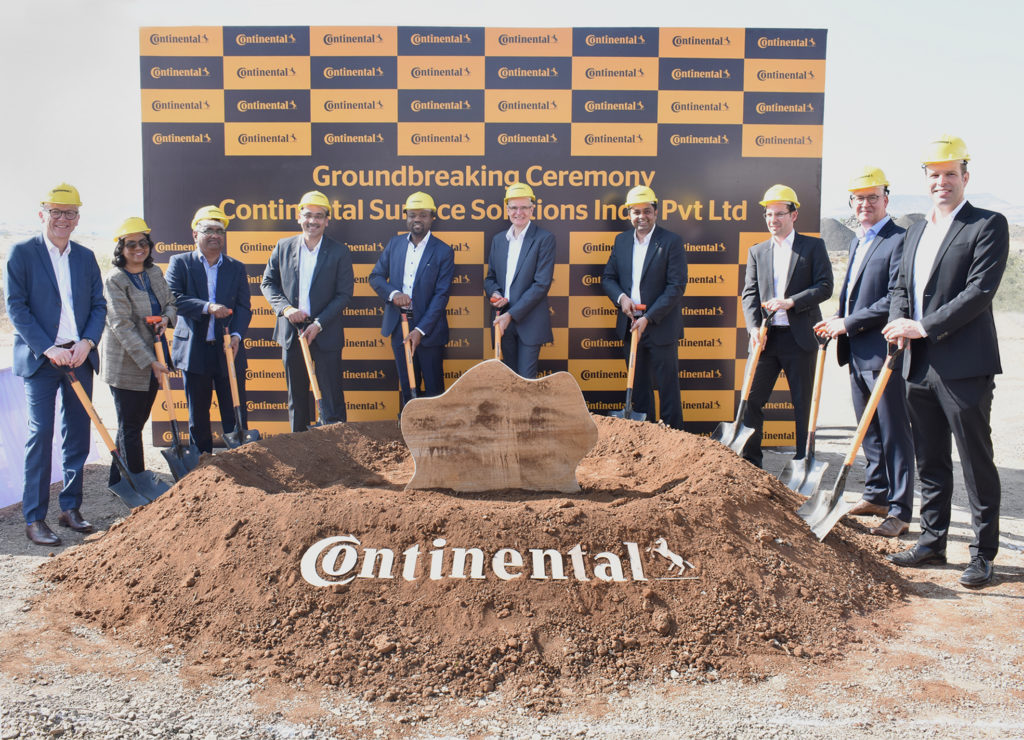On 11 December 2018, Continental performed the symbolic ground-breaking ceremony in Pune, India, signalling the start of construction work on a plant to manufacture premium surface materials for the automotive industry.
According to the company, a 12,000 m2 manufacturing facility with an initial annual capacity of 5 million m2 is to be built on the four-hectare plot at a cost of about EUR 22 million. The factory is scheduled to begin production in 2020 with a workforce of up to 110 employees initially. Continental will supply surface materials to the local Indian market from Pune.

“India is now rated as the fifth-largest automotive market in the world with huge growth opportunities,” said Dr. Dirk Leiß, who is responsible for the business unit for surface materials at Continental. “And every vehicle needs interior materials for seats, door trims and instrument panels. This investment will enable us in the future to offer our Indian customers local solutions that are manufactured in the market for the market.” It is estimated that the number of vehicles in India could more than double from the current 4.8 million to around 10 million by 2025, said the company.
The Acella Eco artificial leather that will be produced in Pune from 2020 is already proving popular in India as a replacement for real leather. “Premium interiors are an important selection criterion for the end user,” said Leiß. The solvent-free and thus low-odour decorative material is hard-wearing and is available in a two-colour design.
Continental has already been represented by a sales team in India for six years. It now supplies the country’s five largest vehicle manufacturers and one of the largest motorcycle manufacturers from other plants. “The new plant in Pune will enable us to further improve both our reaction times and responsiveness and lastingly grow our business in India,” said Leiß. In addition to Acella Eco, the plan is also to manufacture the environmentally compatible Yorn and Yorn Light expanded foils. The interior surface materials offer soft haptics and a broad processing spectrum. They also allow an extensive range of colours and grain designs.

The plant, which will offer room for further expansion, will include production, warehousing, R+D labs, sales, logistics and product development facilities – and local purchasing. Continental produces surface materials in 15 plants around the world and is represented in the key markets in Asia, the Americas and Europe.
“We chose Pune as a location because of its closeness to current customers,” explained site manager Landry Tchapda. Numerous vehicle manufacturers and their system suppliers are right on the doorstep. The proximity to the sea port and airport and the large number of further and higher education institutions were further criteria influencing the choice. When choosing the plot in the Kesurdi area of the south of Pune, the industrial zone’s closeness to the Mumbai-Bangalore highway was a deciding factor, according to Continental.
In India, Continental currently has eight plants and 8,000 employees at 15 sites and is planning to increase the workforce size in the country to 10,000 in the next two years. The Continental Technical Centre India (TCI), which employs more than 3,000 engineers at present, is one of Continental’s three system and technology centres worldwide.
